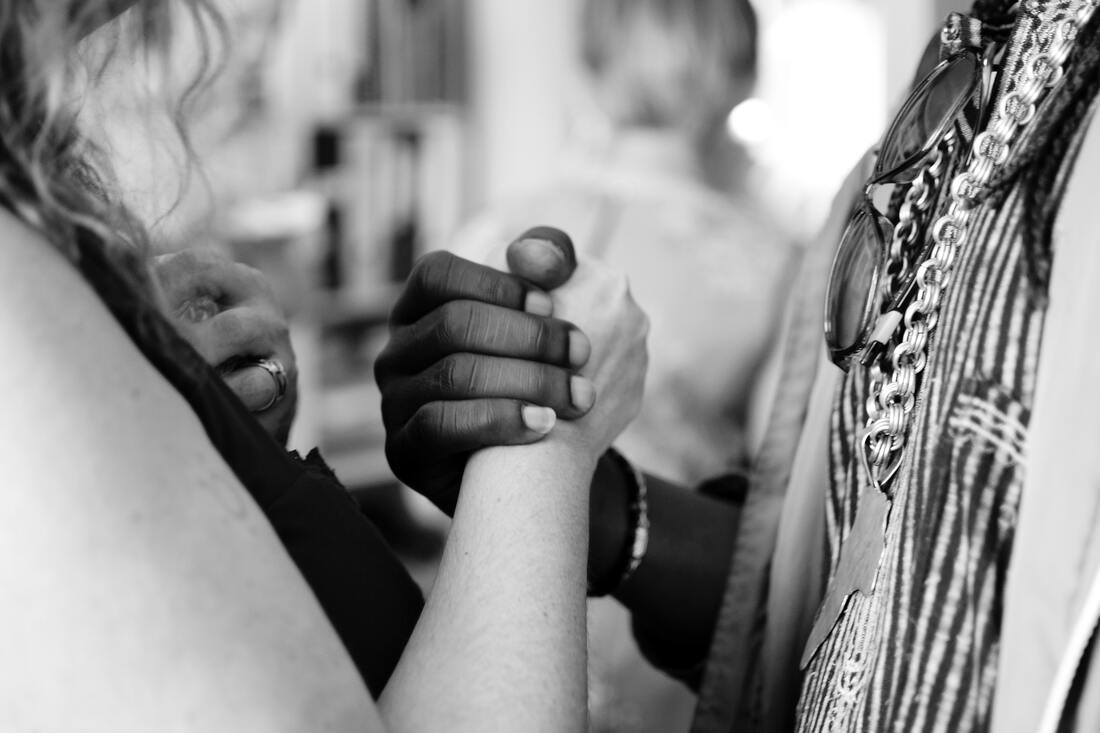|
As we pay special attention to eating disorders during National Eating Disorders Awareness Week (NEDAwareness Week), I’ve been reflecting on this year’s theme, See the Change, Be the Change. I firmly believe that it takes a village to support someone with an eating disorder in their efforts to change and that, within that village, it is also important to pay attention to our own willingness to change.
Eating Disorder Recovery During the Pandemic This idea has been especially true during the pandemic. Even when the individual is wanting to change and move towards recovery, there may be difficulty in finding providers taking new clients, spots in treatment programs, and/or places to receive support in the community. Plus, because an individual with an eating disorder must recover in a diet- and size-focused culture, they are likely dealing with other mental health challenges, such as anxiety, depression, substance use, trauma, OCD, perfectionism, and/or bipolar disorders. These co-occurring conditions challenge their ability to stay focused on the behaviors they want to change. It is crucial, then, for teams and families supporting recovery to also practice flexibility and acceptance during this difficult change process. Three Changes to Support Eating Disorder Recovery I have many years of leadership and practice guiding individuals and their loved ones through the eating disorder recovery process. Given my experience, I want to share a few recommendations for clinicians and families to consider when it comes to changes they can make for the sake of a recovery: 1. Collaborate: It is important that everyone is on the same page, including the recovering individual, when it comes to both the recovery process and the goals, both short-term and long-term. This sort of high-level teamwork is accomplished at treatment centers with a multidisciplinary treatment plan. It can also be done in an outpatient setting by including all providers and family members in the creation of a Wellness Agreement (stay tuned for a blog post focused on this topic!). Having a written document with regular touch points can do wonders in reducing questions about who is supporting what, what’s happening at any given moment, and how difficulties will be faced. Still, it can be a challenging undertaking during recovery, as it requires leadership, coordination, and cooperation from the recovering individual. 2. Reinforce progress and acknowledge struggle: The person recovering is doing an enormous task in recovery. It is beneficial to validate how difficult that work is and to let them know that you understand when they have moments of doubt or hopelessness, struggles, and slips. Together, it’s important to take a longer-range view on their progress. Oftentimes, it is tempting to focus only on the problem points. Instead, though, highlight their successes. Rather than expecting or seeking perfection, help the individual continue to make recovery-focused choices. 3. Allow for the individual to build competence with change: Clinicians and families are often eager to jump in and get to work on all the things they see the individual could change. Sometimes, our timelines are unrealistic though. They may even be about our own fears of looking incompetent if the plan for change isn’t working or going at the pace we’d like to see. For the individual, competence with their own change behaviors is key. The structure of the treatment program or the Family Based Therapy model can help the individual to become medically, psychiatrically, and nutritionally able to build willingness and participation in change by addressing the need for life-saving stabilization. Of course, the process doesn’t stop there. Recovering individuals also need to make the crucial step of walking their bodies through the changes and feeling their own choices. This process can be hard for those of us supporting. Clinicians and families may be tempted to “take over” or “give up” because an individual might regress or slip. During these moments, it may be useful to use the Stoplight Plan for Recovery and check our own expectations. Change usually takes longer than what makes us comfortable. Allowing for some discomfort while preserving our relationship will help the individual to find and feel their own competence with change. I am a proud supporter of NEDAwareness Week. Through my work at Eating Disorder Intervention, I strive to provide hope and support to individuals and their families impacted by eating disorders. Together, let’s see the change and be the change! Check out my website or reach out to me via my contact page. I offer free, 30-minute consultations to new clients. Comments are closed.
|
AuthorBonnie Brennan shares thoughts, inspiration, skills and resources for recovery Archives
June 2022
Categories
All
|

 RSS Feed
RSS Feed